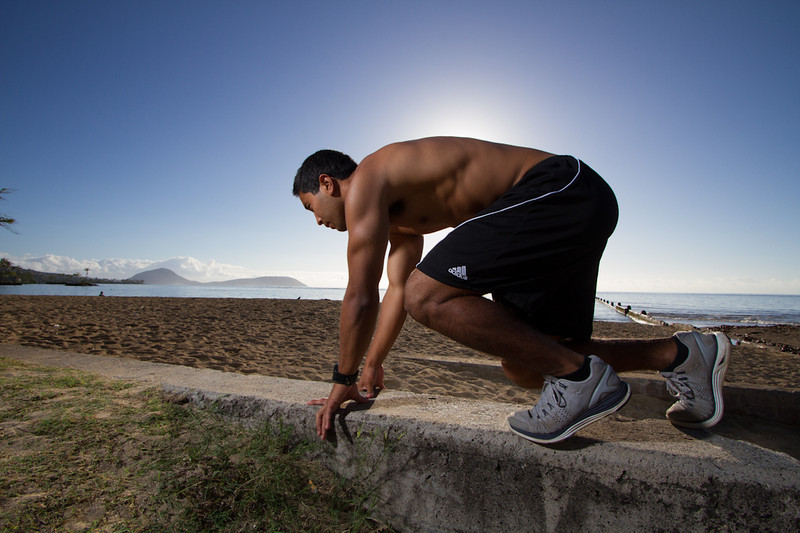Patellofemoral Pain Syndrome P.F.P.S.
(Also known as Runner’s Knee or Chondromalacia Patella )
A common cause of acute or chronic knee pain problems can be attributed to a condition known as P.F.P.S. Many times what starts out as a simple repetitive overuse strain from too much walking, hiking, distance running or sports participation can evolve into a full blown case of P.F.P.S. Runner’s knee can also develop as a secondary problem after traumatic injuries to the knee such as a torn anterior cruciate ligament or meniscal tear, fractures and dislocations of the knee and patella, immobilization after surgery, recovery after total knee replacement surgery or even simple knee osteoarthritis.
The involved knee is typically painful over the front and inside areas of the knee itself or directly underneath the knee cap. The knee cap will often painfully crack or pop with bending, straightening or squatting movements. The pain gets worse with going up and down stairs, distance running, jumping, deep squats, lunges and any impact type of activities. You may find that if you sit with your knees bent while watching a movie for 60-90 minutes or going for a long drive in the car that you have sharp knee pain when you go to stand up.This is referred to as the “Theatre Sign” and can be consistent with the diagnosis of P.F.P.S.
Pain or swelling in the knee after injury, overuse or surgery can set off the cascade of events that cause the onset of Runner’s Knee. The thigh muscles or quadriceps on the painful side are reflexively shut down so they can no longer adequately support the knee. Without this support the knee cap will begin to track out of alignment creating painful compression with movement and subsequent ongoing knee pain and inflammation.

Our therapists’ will identify painful diagnostic pressure points in the muscles, tendons and ligaments of the knee and treat them to relieve the painful compression of the knee cap and knee joint. Pressure point treatment will also shut off the protective joint reflexes that maintain the weakness of the thigh muscles. We will evaluate your knee movement to identify and treat any joint related restrictions or stiffness that is contributing to the problem. A simple taping technique (McConnell taping) can be applied to the knee cap itself to help eliminate the patellar malalignment and restore pain-free movement. The tape is waterproof, hypoallergenic and can be worn for 2-7 days for ongoing support with activity and at rest.
In addition to pressure point treatment and hands on joint mobilization, our therapy team will instruct you in specific quadriceps strengthening exercises, hamstring-calf stretches, a dynamic warm-up program, self taping and icing techniques. Activity modification during the painful stage is a must. Cross training will be recommended such as cycling, swimming or water aerobics to limit strain from impact activities. Once the pain stabilizes you’ll be instructed in a program to safely transition you back to full activity levels.
P.F.P,S. is an all too common source of knee pain that often goes undiagnosed. Runner’s knee can be the primary cause of your pain or can develop as a secondary result of the many diagnosis’ listed above. If you’re still having knee pain or restricted activity following injury or surgery, We Can Help. With proper diagnosis and treatment with the therapists at MCOPT, ” You Can Get Better And Stay Better.”

